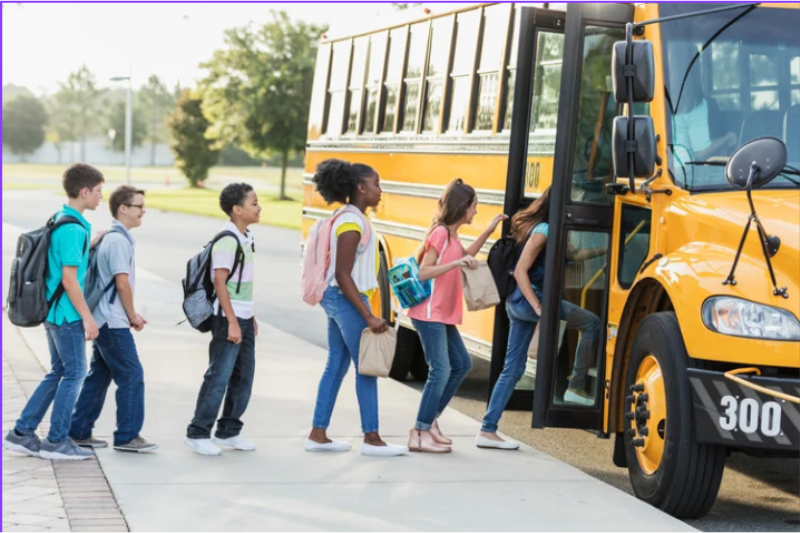
For many families in California, the yellow school bus is a daily part of life. Thousands of children rely on school buses every day to get to and from school safely—especially in large urban areas like Los Angeles, Burbank, Glendale, and Pasadena. School districts, charter schools, and private institutions all depend on this transportation to keep their students moving, and strict state and federal regulations are in place to help protect young passengers.
But despite these safety standards, school bus accidents still happen—and when they do, the consequences can be devastating. From collisions with other vehicles to mechanical failures and even injuries while boarding or exiting the bus, these incidents can result in serious physical and emotional harm for children. For parents, this raises urgent and difficult questions: Who is responsible? Who pays for medical treatment? What are our legal rights?
The aftermath of a school bus accident can be overwhelming, especially when your child is involved. Schools, bus companies, and even city departments may rush to protect themselves, while insurance companies often look for ways to minimize claims. That’s why it’s so important for parents to understand the legal options available when a child is injured in a school bus crash in California.
If the accident was caused by negligence or recklessness on the part of the bus driver, they can be held liable. This includes:
Since bus drivers are often employed by a school district or private company, their employer may also share liability under California’s vicarious liability laws.
When the school district owns and operates the buses, it has a duty to:
If the district fails to uphold these responsibilities, it may be liable for negligent hiring, training, or supervision—or for not maintaining its buses in a safe condition. Claims against public school districts must follow the California Tort Claims Act, with a strict 6-month deadline to file a government claim.
Many California school districts outsource transportation to private companies. If your child was injured in a bus operated by a third-party provider, you may have a claim against that company for:
Unlike public entities, private companies are not protected by government immunity, so your legal options may be broader—but the company's insurer will still fight to limit your claim.
In many cases, the bus driver is not at fault. Instead, the crash may be caused by another motorist who:
These third-party drivers can be held liable through their personal auto insurance or, in some cases, through additional coverage if they were driving for work.
If the accident was caused or worsened by a mechanical failure, such as faulty brakes, tire blowouts, or steering issues, liability may fall on:
These cases typically fall under product liability law, and require expert investigation and technical evidence.
Finally, some accidents are caused or made worse by hazardous road conditions, such as:
If a public agency (like the City of Los Angeles or the County of Los Angeles) failed to maintain safe roadways or traffic controls, they may be held liable—but again, claims against government entities must be filed within 6 months under the California Tort Claims Act.
Most school buses in California are owned and operated by public school districts, which are considered government entities. This means that any legal claim against the district must comply with the California Tort Claims Act (CTCA)—a law that imposes special rules and tight deadlines.
In some areas, student transportation is handled by private schools, charter organizations, or third-party bus companies. These entities are not subject to the California Tort Claims Act, which makes the process more like a traditional personal injury case.
Private bus companies may still deny liability or attempt to limit payouts, so having a strong legal advocate remains essential.
Children under 18 cannot legally file a lawsuit on their own in California. Instead, a parent or legal guardian must act as their “guardian ad litem”—a legal representative who files the claim and makes decisions in the child’s best interest.
This representative is responsible for:
This process allows families to take legal action while still protecting the minor’s rights throughout the case.
In California, any settlement involving an injured child must be approved by a judge, regardless of the settlement amount. This is a critical safeguard to:
The court may require a formal petition for compromise of the claim, which includes medical records, settlement terms, and how the funds will be managed.
For cases involving serious or long-term injuries, the court may order or approve a structured settlement. These are financial arrangements that pay out the settlement over time, usually through an annuity, to cover:
Structured settlements ensure that compensation is available when the child needs it most, especially as they grow older.
Because children are still developing physically and emotionally, the impact of a school bus accident can be both immediate and long-lasting. In addition to medical expenses, a claim may seek damages for:
These are critical factors that must be carefully documented and supported by medical, educational, or psychological evaluations.
When you put your child on a school bus, you trust that they’ll arrive safely. But when that trust is broken—whether through driver negligence, mechanical failure, or unsafe road conditions—you have every right to demand accountability. No parent should be left navigating medical bills, insurance battles, or school bureaucracy alone.
In California, there are clear legal paths to help families recover after a school bus accident, but timing is critical—especially when public school districts or government entities are involved. Delays can lead to missed deadlines and lost opportunities for justice.
At Tim Wright Law, we are here to protect what matters most: your child’s health, future, and legal rights. We offer compassionate, experienced guidance and never charge upfront fees—you only pay if we win.
📞 Call Tim D. Wright Today for a Free Consultation
Personal Injury Office:
1112 W. Burbank Blvd., Suite 302
Burbank, CA 91506
📱 (323) 379-9995 📧 firm@timwrightlaw.com 🌐 www.timwrightlaw.com
🔗 Follow us for safety tips and legal updates:
Facebook
Instagram
Twitter